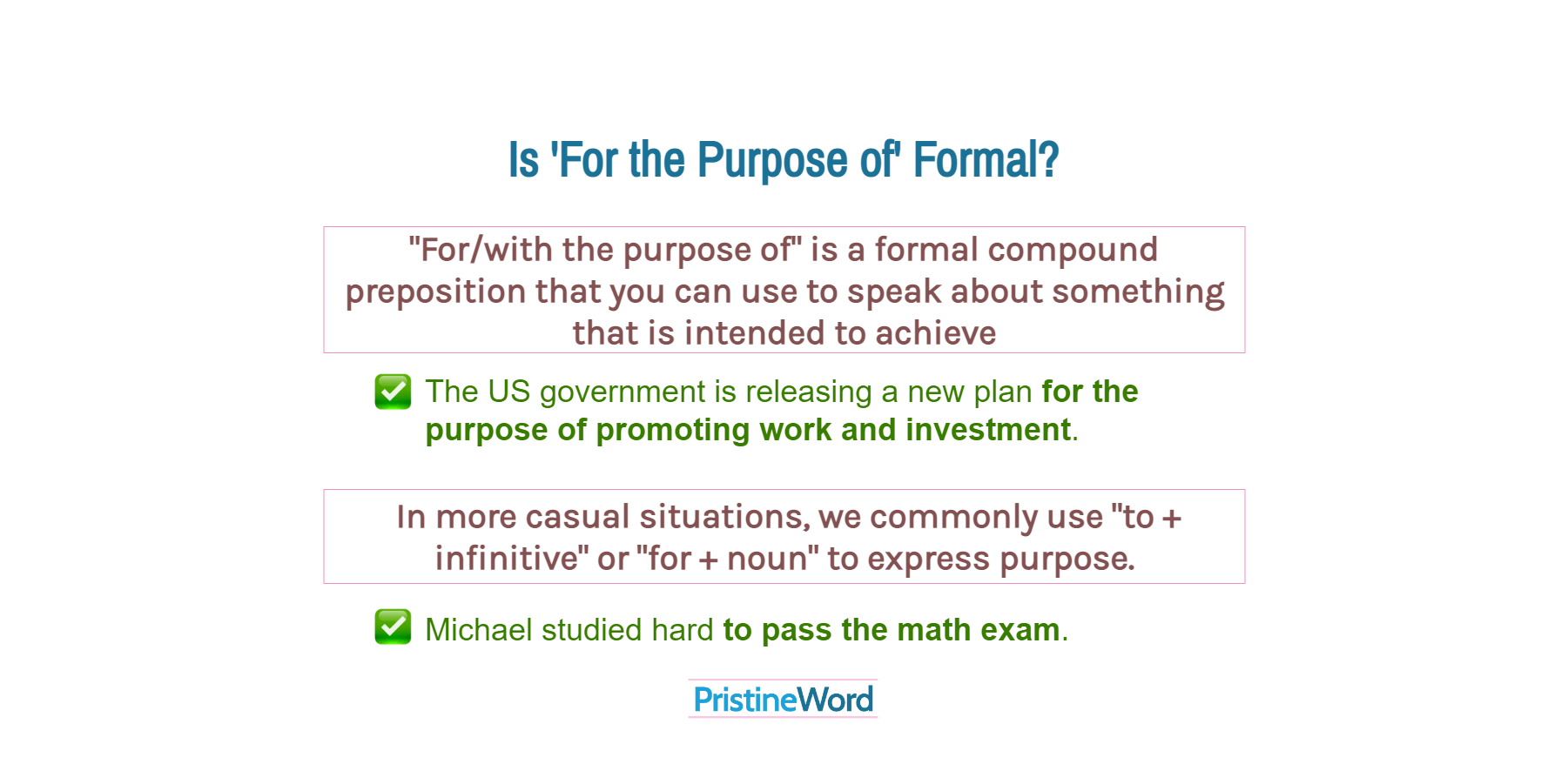"For the purpose of" and "with the purpose of" are compound prepositions that are mostly used in formal language or writing.
"For the purpose of" and "with the purpose of" are compound prepositions that are mostly used in formal language or writing.
The US government is releasing a new plan for the purpose of promoting work and investment.
We can use "for/with the purpose of" to speak about a plan, an aim, or something that is intended to achieve. In colloquial language, however, we usually introduce the constructions "to + infinitive" or "for + noun" to express purpose.
Michael studied hard to pass the math exam.
Michael studied hard for the purpose of passing the math exam
In colloquial English language or to sound more natural, use "to + infinitive" or "for + noun" to talk about the goal that someone wants to achieve. Sporadically, in writing or formal language, you can use "for the purpose of" or "with the purpose of" to avoid repetition or show emphasis. Be aware, however, that overusing these compound prepositions may sound wordy in many contexts, including writing.
When starting a sentence with "for/with the purpose of", add a comma after the introductory phrase.
With the purpose of combatting inflation, the government launched a new stabilization plan.
These prepositions are synonyms of "for the purpose of". All of them have a similar meaning, carry the same degree of formality, and have a gerund as its object:

